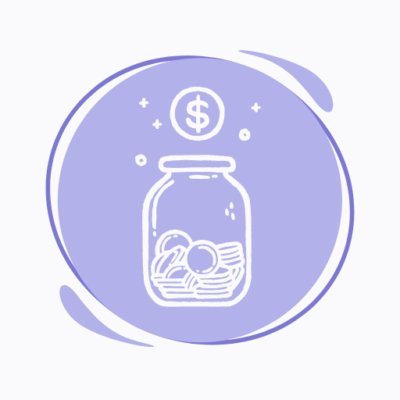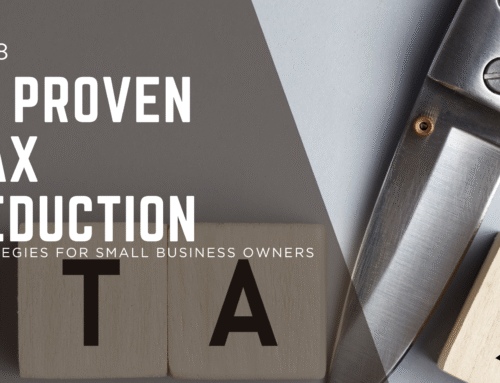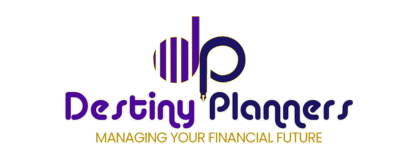
Welcome to the final installment of our blog monetization series! While advertising and affiliate marketing are great starting points, creating your own products and services represents the ultimate monetization achievement. These eight strategies transform your expertise into owned revenue streams that can scale independently of traffic fluctuations.
🎬 Series Finale
This completes our 3-part monetization series. Start with Part 1 for foundational strategies or review Part 2 for advanced advertising methods.
From Content Creator to Product Creator
These product-based monetization methods allow you to leverage your expertise beyond advertising revenue, creating assets that generate income for years to come.
🚀 Your Monetization Evolution
Stage 1: Advertising
Monetizing other people’s products (ads, affiliates)
Stage 2: Digital Products
Creating your own digital assets (eBooks, courses)
Stage 3: Services & Experiences
Offering personalized services (coaching, workshops)
Stage 4: Physical Products
Creating tangible goods (books, merchandise)
8 Product-Based Monetization Strategies
1. eBook Creation & Sales
Transform your expertise into a digital book that provides lasting value to your audience while generating passive income.
✅ Advantages
- 100% revenue when sold on your website
- Establishes you as an authority in your niche
- Passive income potential for years
- Drives traffic to your website
- Low production costs compared to physical books
❌ Considerations
- Requires significant writing time and effort
- Need to handle marketing and promotion
- Ongoing updates may be required for evergreen topics
📚 eBook Success Strategy
- Choose topics based on your most popular blog content
- Offer sample chapters to build anticipation
- Use your blog to build an email list for launch promotion
- Consider bundling with other products for higher value
2. Traditional Book Publishing
Leverage your blog’s success to launch a physical book that extends your reach beyond the digital world.
✅ Advantages
- Significant credibility and authority boost
- Reach new audiences through bookstores and libraries
- Potential for speaking engagements and media features
- Tangible product for workshops and events
❌ Considerations
- Much longer production timeline
- Higher upfront costs for self-publishing
- Lower profit margins than eBooks
- Requires existing platform for successful sales
3. Strategic Product Reviews
Go beyond basic affiliate marketing by creating comprehensive, trustworthy reviews that become destination content.
✅ Advantages
- Higher conversion rates than generic affiliate links
- Builds trust through honest, detailed analysis
- Can become authority content that ranks well in search
- Opportunities for sponsored reviews at premium rates
❌ Considerations
- Requires access to products for testing
- Time-intensive research and writing process
- Must maintain objectivity to preserve credibility
- Need to disclose affiliate relationships transparently
🎯 Review Strategy
- Focus on products genuinely relevant to your audience
- Create comparison reviews between multiple products
- Include both pros and cons for authenticity
- Use high-quality photos and video demonstrations
- Update reviews regularly as products change
4. Premium Tutorials & Guides
Package your knowledge into comprehensive educational content that solves specific problems for your audience.
✅ Advantages
- High perceived value for specialized knowledge
- Can repurpose existing blog content into deeper guides
- Builds your reputation as a helpful expert
- Multiple format options (PDF, video, audio)
❌ Considerations
- Requires identifying knowledge gaps worth paying for
- Need to structure information logically and completely
- Ongoing updates may be necessary
💡 Tutorial Format Ideas
📖 Step-by-Step Guides
Detailed processes from start to finish
🎬 Video Tutorials
Visual demonstrations of complex tasks
📊 Resource Libraries
Curated tools, templates, and checklists
🔧 Problem-Solution Packs
Specific solutions to common challenges
5. Online Teaching Programs
Scale your knowledge transfer through structured courses that provide transformational learning experiences.
✅ Advantages
- Higher price points than individual products
- Recurring revenue through course updates or membership
- Builds a community of dedicated students
- Multiple revenue models (one-time, subscription, certification)
❌ Considerations
- Significant upfront development time
- Need robust platform for delivery and student management
- Requires ongoing student support and engagement
- Must differentiate from free content
💰 Premium Content Principle
Your paid courses must offer significantly more value than your free content. Charge premium prices only for premium, transformative experiences that deliver measurable results.
🎓 Course Component Ideas
- Video lessons with demonstrations
- Downloadable workbooks and templates
- Interactive quizzes and assessments
- Community forums for peer learning
- Live Q&A sessions
- Certification upon completion
6. Live Workshops & Events
Create immersive in-person experiences that command premium pricing through direct interaction and networking.
✅ Advantages
- Highest price point of all monetization methods
- Builds deep relationships with your audience
- Multiple revenue streams (tickets, product sales, recordings)
- Content can be repurposed for digital products
❌ Considerations
- Significant logistical planning required
- Higher risk if attendance is low
- Geographically limited to your location
- Time-intensive for preparation and delivery
💵 Workshop Revenue Opportunities
🎫 Ticket Sales
Primary income from attendee registrations
🛒 Product Sales
Books, courses, merchandise at the event
🤝 Speaker Partnerships
Revenue share from guest speaker product sales
📹 Content Repurposing
Sell recordings and materials after the event
7. Interactive Webinars
Reach global audiences with live online presentations that combine education with real-time interaction.
✅ Advantages
- Global reach without geographical limitations
- Lower overhead than physical events
- Interactive features (polls, Q&A, chat)
- Recordings can be sold as evergreen products
❌ Considerations
- Technical setup and platform learning curve
- Time zone challenges for international audiences
- Requires strong presentation skills
- Competition with free webinars in many niches
🎤 Webinar Funnel Strategy
Free Introductory Webinar
Build trust and demonstrate value to a broad audience
Paid Advanced Webinars
Offer deeper, specialized training to engaged participants
Premium Course Upsell
Convert webinar attendees into long-term students
8. Physical Product Creation
Leverage your creative talents or expertise to develop tangible products that complement your digital presence.
✅ Advantages
- Global customer base through online sales
- Products can become standalone businesses
- Tangible brand extension beyond digital content
- Potential for wholesale and retail distribution
❌ Considerations
- Inventory management and storage requirements
- Shipping logistics and international regulations
- Higher upfront investment for production
- Need for product photography and detailed descriptions
🎨 Physical Product Opportunities
🛠️ Craft & Hobby Items
Handmade goods related to your niche (pottery, art, etc.)
👕 Branded Merchandise
T-shirts, mugs, stickers featuring your brand
📦 Product Kits
Curated kits that complement your tutorials or courses
📚 Physical Books & Workbooks
Tangible versions of your digital products
Implementation Roadmap
Phase 1: Quick Wins (1-3 months)
- Create your first eBook based on popular blog content
- Develop premium tutorials for your most-requested topics
- Test product review content with affiliate links
Phase 2: Building Authority (3-9 months)
- Launch your first online course or webinar series
- Explore physical book publishing options
- Develop branded merchandise or simple physical products
Phase 3: Scaling Business (9-18 months)
- Host live workshops or larger events
- Expand product lines based on customer feedback
- Develop certification programs or advanced training
Your Complete Monetization Ecosystem
The most successful blogs combine multiple monetization strategies across different categories, creating a resilient revenue ecosystem that withstands market changes and platform algorithm shifts.
💰 Advertising Revenue
PPC ads, display advertising, sponsored content
🤝 Affiliate Revenue
Product reviews, recommendations, partnership commissions
📚 Digital Products
eBooks, courses, templates, membership sites
🎯 Services & Experiences
Coaching, workshops, webinars, consulting
📦 Physical Products
Books, merchandise, craft items, product lines
🎉 Your Monetization Journey Complete
Across this 3-part series, we’ve explored everything from basic advertising to creating your own product empires. The most successful bloggers don’t rely on a single revenue stream—they build diverse portfolios that leverage their unique expertise and audience relationships. Start where you are, use what you have, and gradually build your monetization ecosystem one strategy at a time.
“A wealthy person is simply someone who has learned how to make money when they’re not working.” – Robert Kiyosaki







